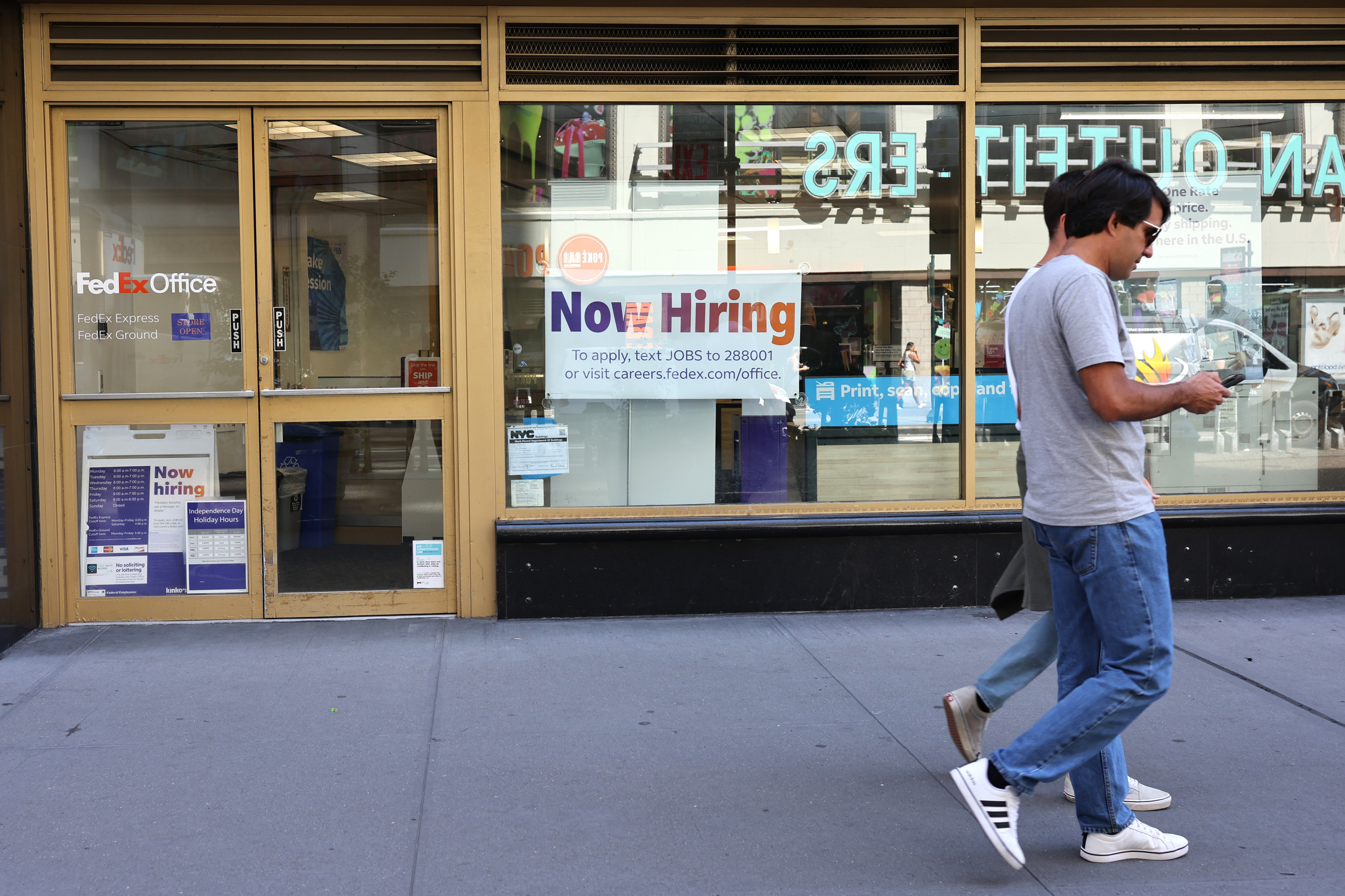Jobs
It’s taking unemployed Americans more than a year to find a new job

Unemployed Americans are taking more than a year to find a new job, according to a report from RedBalloon and PublicSquare.
The study, which is based on the responses of 100,000 job seekers and employees, found that 44 percent of job seekers had been out of work for over 12 months. “It’s been awful,” one job seeker said in the survey. “I’ve sent 125 applications in a year and have gotten a few freelance gigs, but not a full-time job to live comfortably (and we are not flashy people).”
The job market has been increasingly difficult for Americans in recent months, according to the report. Roughly 64 percent of job seekers said it is more difficult to find a new job than it was six months ago, and 71 percent of job seekers said their financial situation is worse than a year ago.
Michael M. Santiago/Getty Images
“Perhaps we are in a different kind of recession,” RedBalloon CEO Andrew Crapuchettes said in a statement. “The overall slowdown in population growth has created a people shortage, so in an economic slowdown, most keep their jobs, but the economic pain is real. That’s what we’re seeing in this survey.”
Alex Beene, a financial literacy instructor at the University of Tennessee at Martin, said many people have the misconception that a lower unemployment rate and a high number of jobs available means the labor market is ideal for most employees.
In the latest U.S. jobs report, nonfarm payrolls grew by 120,000 in July, which was substantially lower than analyst predictions of 200,000. Unemployment had also increased to its highest level since October 2021, a nearly three-year high of 4.3 percent in July.
“The reality is not every industry is booming, and even some who were in recent years have been seeing cuts to their workforce over the last 18 months,” Beene told Newsweek. “Once you realize the downside to an otherwise very good economy, it becomes easier to understand why some have been searching for a job that matches their skills set for more than a year.”
Beene said job seekers will likely need to have diversity in their skill set rather than just job specialization.
“Every form of the economy requires a certain amount of adaptation on the employer and the employee’s ends,” he said. “If your job search is lasting more than a year, it may be time to consider expanding your skills set to make you more promotable for other lines of work.”
The problem is larger than just individual job seekers’ résumés, though. HR consultant Bryan Driscoll said the 44 percent of job seekers who have been out of work for more than a year reflects a “deep flaw” in the system.
“It’s not just about lacking skills,” Driscoll told Newsweek. “It’s about a job market that values profits over people. Companies are squeezing more out of workers while offering less in return, leaving many locked out of the workforce.”
Because of the current job market, he said, the economy is likely to see reduced consumer spending and a “growing sense of hopelessness.”
“When nearly half of job seekers are stuck in unemployment for over a year, it’s clear the system is failing them,” Driscoll said. “The longer someone is jobless, the harder it becomes to reenter the workforce, creating a vicious cycle that deepens inequality.”
An uptick in “ghost” job listings is also contributing to the problem, said Kevin Thompson, a finance expert and the founder and CEO of 9i Capital Group.
“Employers post open positions on job sites but aren’t actively looking to fill them, or they seek a ‘unicorn’ candidate willing to accept a significant pay cut,” Thompson told Newsweek.
He continued: “In the aftermath of COVID-19, job seekers initially had the upper hand, demanding higher wages and job security, bolstered by programs like the Paycheck Protection Program and the Employee Retention Credit. As these programs wind down, employers are less incentivized to hire, especially if they anticipate a slowing economy.”







